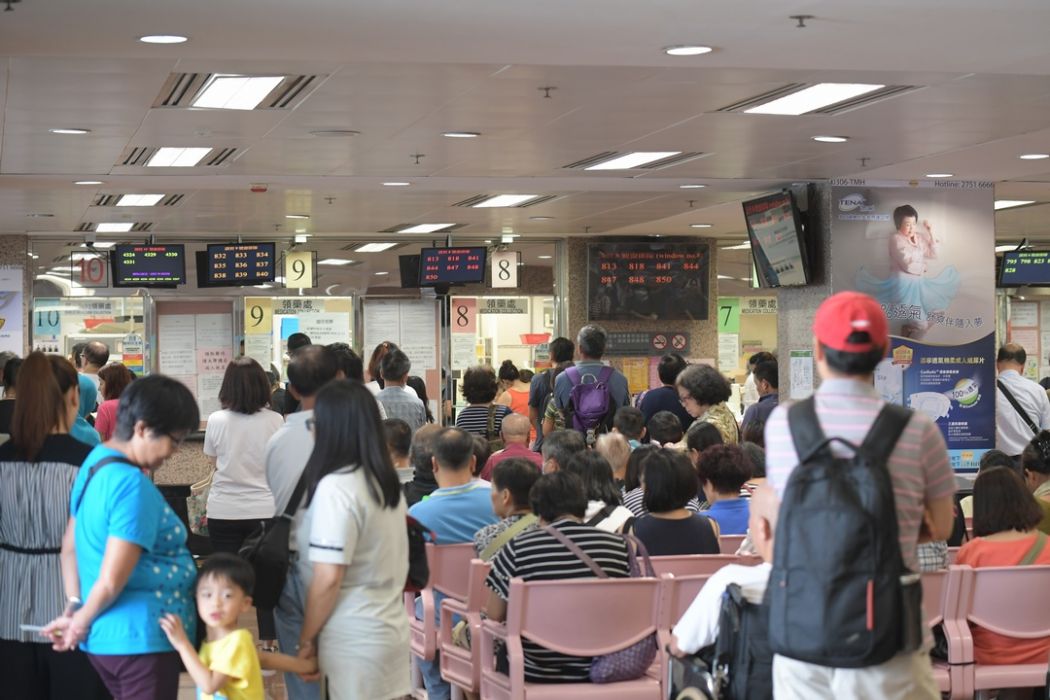Ip Kam Shun plods into the emergency room of the North District Hospital at dawn with a band on his swollen arm from a centipede bite. The time it took before a doctor attended to him: two hours.
“I felt nervous and helpless,” Ip said, concerned that a delay in getting the poison treatment he needed could inflict serious damage. “If you don’t have money, you can only go to the emergency room and queue up.”

Ip is just one of the thousands in Hong Kong afflicted by the long wait at public hospitals. A shortage of resources — exacerbated by low pay for doctors and a spike in population — is causing some patients to wait months, if not years, before surgery, missing optimal time for treatment and even leading to cases of death.
Last month, a 72-year-old man died of a cerebral haemorrhage due to a delay in surgery. He was sent to the Prince of Wales Hospital’s emergency department by ambulance after he vomited and complained of dizziness. It was almost an hour after he arrived at hospital before he was diagnosed, according to the Oriental Daily.
The doctor to patient ratio in Hong Kong stood at 1:519 in 2018, according to statistics from the Department of Health in Hong Kong. That compares with a ratio of 1:258 in New York.

The high cost of private clinics means that many can only opt for treatment at public hospitals. Such is the case with Wong Chuen Wah, a 53-year-old woman who has been waiting to see a doctor about her neck pain for half a year. A specialist session will cost about HK$135 at a public hospital. Treatment at a private clinic could cost about seven times as much.
In Hong Kong, the Food and Health Bureau forms policies and allocates resources. The Hospital Authority is responsible for managing public hospitals. In the past five years, the Hospital Authority has pushed for hiring more doctors, nurses and full-time medical personnel. It has set aside funds with which to offer promotions to entice front-line medical professionals, alongside providing overseas scholarships. This is according to its plans for 2017 to 2022.
Money is not the only bottleneck. In Hong Kong, it takes at least 13 years to become a specialist physician: six years of basic medical training for a Bachelor’s degree, a one-year internship and six years of specialised training.

In addition, when it comes to enticing doctors, public hospitals cannot compete with the private sector in terms of what it can pay staff. For example, Dr Cheng King-lik doubled his salary by transferring from a public hospital to a private clinic in 2017, according to the Hong Kong Economic Times.
“Compared with private hospitals, public ones pay too poorly,” said Yuen Xiao-ling, a nurse in North District Hospital.
The Hong Kong government will allocate HK$78 billion to its Health Department in the coming financial year. This number accounts for 14 per cent of total fiscal expenditure, according to the 2018-19 budget plan. In comparison, it will spend HK$85.6 billion on infrastructure, accounting for 15.4 per cent of total fiscal expenditure.
The government itself has acknowledged that the shortage of medical staff means that easing the stress on public medical services in the short term is a struggle. This is according to the Legislative Council’s 2017-2018 Research Brief. So waitlist issues and ordeals facing the likes of Ip aren’t likely to disappear anytime soon.
Correction 22.1: A previous version of this article included a claim about the effect of immigration upon the local hospital system. It was removed having been found to be unsubstantiated.
